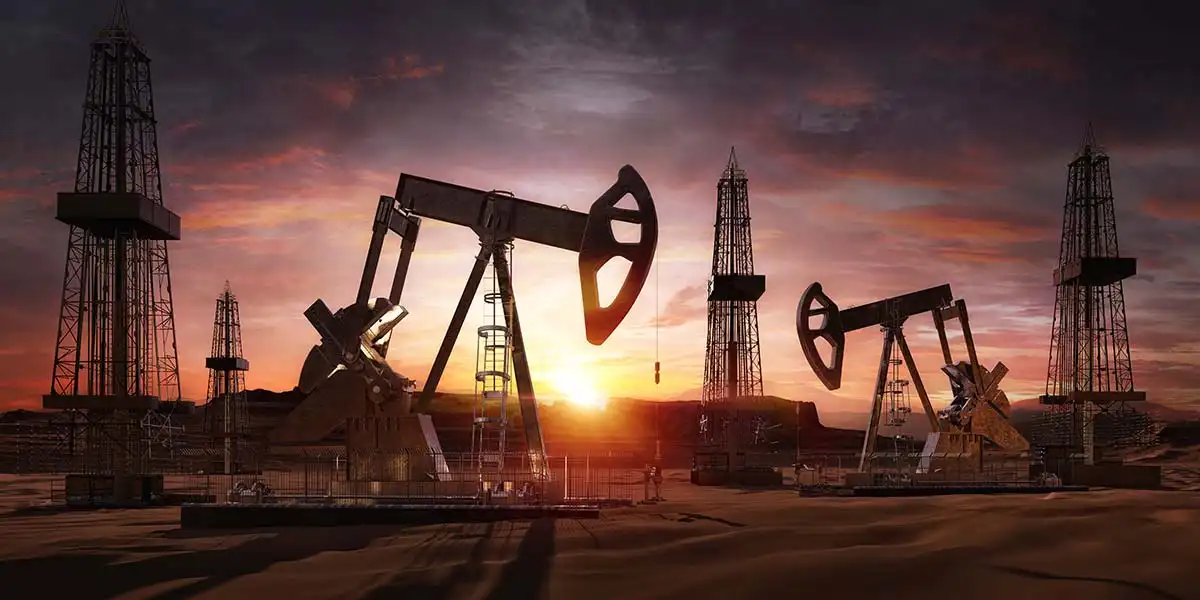
May 23, 2024
Blog Digital World AI in Oil and Gas: Market Trends and Technological Innovations
Technology advancements have caused a dramatic upheaval in the oil and gas sector in recent years. Artificial intelligence (AI) is one of these advancements that has really changed the game, transforming every facet of the industry from production and exploration to distribution and refining. In this blog article, we will examine the developments, uses, and potential futures of artificial intelligence (AI) in the global markets and oil and gas industry.
According to BCC Research, the global market for AI Technology in the Oil and Gas Sector is estimated to increase from $2.8 billion in 2023 to reach $5.1 billion by 2028, at a compound annual growth rate (CAGR) of 12.9% from 2023 through 2028.

The global market for AI Technology in the Oil and Gas Sector is estimated to increase from $2.8 billion in 2023 to reach $5.1 billion by 2028, at a compound annual growth rate (CAGR) of 12.9% from 2023 through 2028.
There are various reasons why the oil and gas industry has been integrating AI technologies. These include the requirement to maximize production efficiency, the rising need for energy, and the complexity of operating in difficult and distant areas. By facilitating process automation, predictive maintenance, and data-driven decision-making, artificial intelligence (AI) provides answers to these problems.
In the crucial field of exploration and production (E&P), artificial intelligence is having a significant impact. In the past, seismic data processing and comprehensive geological investigations were required to find possible drilling locations. However, large datasets are now being analyzed swiftly and precisely by AI systems, which aids geoscientists in more precisely identifying prospective places. This lowers the hazards associated with exploration while also increasing the overall output of oil and gas wells.
Additionally, the performance of drilling equipment is optimized and costly downtime is avoided through the use of AI-driven predictive maintenance approaches. Operators can reduce operational interruptions and increase asset uptime by using machine learning algorithms to predict equipment faults before they happen.
Artificial intelligence (AI) algorithms are used in reservoir management to simulate intricate subsurface reservoirs and forecast production patterns. These models assist operators in maximizing recovery rates, optimizing reservoir performance, and extending the life of oil and gas fields. Real-time monitoring and control are made possible by AI-driven reservoir simulation software, which improves reservoir management techniques.
The oil and gas industry is witnessing a revolution in asset management through the use of AI-powered predictive maintenance. Artificial intelligence (AI) systems are able to anticipate equipment breakdowns by evaluating sensor data from devices like pumps, compressors, and turbines. This proactive strategy improves operational reliability, lowers maintenance costs, and minimizes downtime.
AI is now being used in oil and gas operations to monitor environmental conditions and safety. Real-time safety hazard and environmental risk detection is made possible by computer vision systems using AI algorithms. This allows for timely intervention to reduce environmental damage and prevent accidents. Moreover, AI-powered predictive analytics assists operators in anticipating and reducing the impact of climate-related events and natural disasters on their operations.
The oil and gas business is one where artificial intelligence is quickly taking off globally. As a result of growing demand for cost reduction, environmental sustainability, and operational efficiency, market research estimates predict that the worldwide AI in oil and gas market will reach multi-billion dollar values in the next few years. When it comes to AI solutions for the oil and gas industry, North America continues to lead because to its enormous reserves and technological expertise, closely followed by the Middle East, Asia Pacific, and Europe.
Even with AI's enormous promise, there are obstacles to overcome before these technologies can be widely used in the oil and gas sector. To fully reap the benefits of deploying AI, businesses need to overcome a number of significant obstacles, including data quality, cybersecurity concerns, and interoperability challenges. Furthermore, significant expenditures in organizational change management and people development are necessary for the shift to AI-powered processes.
Anticipating further developments in robotics, machine learning, and predictive analytics, AI in the oil and gas sector looks bright. These advances should spur innovation at every stage of the value chain. Collaborations between technology providers, energy corporations, and regulatory agencies will be crucial to realizing the full potential of AI in influencing the future of the oil and gas sector as businesses adopt AI as a strategic priority.
In conclusion, Artificial Intelligence (AI) is revolutionizing the oil and gas sector by facilitating data-driven decision-making, streamlining processes, and improving environmental and safety outcomes. Oil and gas businesses that embrace innovation will have a competitive advantage in the global market as the use of AI technologies continues to pick up speed. The sector may overcome obstacles, seize new possibilities, and promote sustainable growth in the years to come by utilizing AI.

Sandeep is a Senior Executive in Marketing Operations at BCC Research, proficiently serving as a graphic designer and content creative specialist. His expertise extends to AutoCAD and Revit, and he has made valuable contributions to the event industry with his design skills.

From smartphones to satellites, antennas play a vital role in enabling the seaml...

Introduction Artificial Intelligence (AI) and the Internet of Things (IoT) are r...

We are your trusted research partner, providing actionable insights and custom consulting across life sciences, advanced materials, and technology. Allow BCC Research to nurture your smartest business decisions today, tomorrow, and beyond.
Contact UsBCC Research provides objective, unbiased measurement and assessment of market opportunities with detailed market research reports. Our experienced industry analysts assess growth opportunities, market sizing, technologies, applications, supply chains and companies with the singular goal of helping you make informed business decisions, free of noise and hype.